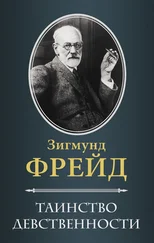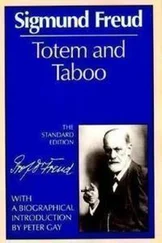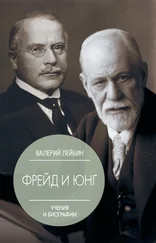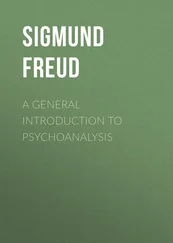Twenty-seventh Lecture
General Theory of the Neuroses - Transference
We are nearing the close of our discussions, and you probably cherish certain expectations, which shall not be disappointed. You think, I suppose, that I have not guided you through thick and thin of psychoanalytic subject matter to dismiss you without a word about therapy, which furnishes the only possibility of carrying on psychoanalysis. I cannot possibly omit this subject, for the observation of some of its aspects will teach you a new fact, without which the understanding of the diseases we have examined would be most incomplete.
I know that you do not expect any guidance in the technique of practising analysis for therapeutic purposes. You wish to know only along what general lines psychoanalytic therapy works and approximately what it accomplishes. And you have an undeniable right to know this. I shall not actually tell you, however, but shall insist that you guess it yourselves.
Only think! You know everything essential, from the conditions which precipitate the illness to all the factors at work within. Where is there room for therapeutic influence? In the first place, there is hereditary disposition; we do not speak of it often because it is strongly emphasized from another quarter, and we have nothing new to say about it. But do not think that we underestimate it. Just because we are therapeutists, we feel its power distinctly. At any rate, we cannot change it; it is a given fact which erects a barrier to our efforts. In the second place, there is the influence of the early experiences of childhood, which are in the habit of becoming sharply emphasized under analysis; they belong to the past and we cannot undo them. And then everything that we include in the term "actual forbearance"—misfortunes of life out of which privations of love arise, poverty, family discord, unfortunate choice in marriage, unfavorable social conditions and the severity of moral claims. These would certainly offer a foothold for very effectual therapy. But it would have to be the kind of therapy which, according to the Viennese folk–tale, Emperor Joseph practiced: the beneficial interference of a potentate, before whose will men bow and difficulties vanish. But who are we, to include such charity in the methods of our therapy? Poor as we are, powerless in society, forced to earn our living by practicing medicine, we are not even in a position to treat free of charge those patients who are unable to pay, as physicians who employ other methods of treatment can do. Our therapy is too long drawn–out, too extended for that. But perhaps you are still holding to one of the factors already mentioned, and think that you have found a factor through which our influence may be effective. If the restrictions of morality which are imposed by society have a share in the privation forced upon the patient, treatment might give him the courage, or possibly even the prescription itself, to cross these barriers, might tell him how gratification and health can be secured in the renunciation of that ideal which society has held up to us but often disregards. One grows healthy then, by giving one's sexuality full reign. Such analytic treatment, however, would be darkened by a shadow; it does not serve our recognized morality. The gain to the individual is a loss to society.
But, ladies and gentlemen, who has misinformed you to this degree? It is inconceivable that the advice to give one's sexuality full reign can play a part in analytic therapy, if only from the circumstance we have ourselves described, that there is going on within the patient a bitter conflict between libidinous impulse and sexual suppression, between sensual and ascetic tendencies. This conflict is not abolished by giving one of these tendencies the victory over its opponent. We see that in the case of the nervous, asceticism has retained the upper hand. The consequence of this is that the suppressed sexual desire gains breathing space by the development of symptoms. If, on the other hand, we were to give the victory to sexuality, symptoms would have to replace the sexual suppression, which has been pushed aside. Neither of the two decisions can end the inner conflict, one part always remains unsatisfied. There are only a few cases wherein the conflict is so labile, that a factor such as the intervention of the physician could be decisive, and these cases really require no analytic treatment. Persons who can be so much influenced by a physician would have found some solution without him. You know that when an abstinent young man decides upon illegitimate sex–intercourse, or when an unsatisfied woman seeks compensation from another man, they have generally not waited for the permission of a physician, far less of an analyst, to do this.
In studying the situation, one essential point is generally overlooked, that the pathogenic conflict of the neurotic must not be confused with normal struggles between psychic impulses of which all have their root in the same psychological soil. The neurotic struggle is a strife of forces, one of which has attained the level of the fore–conscious and the conscious, while the other has been held back in the unconscious stage. That is why the conflict can have no outcome; the struggling parties approach each other as little as in the well–known instance of the polar–bear and the whale. A real decision can be reached only if both meet on the same ground. To accomplish this is, I believe, the sole task of therapy.
Moreover, I assure you that you are misinformed if you assume that advice and guidance in the affairs of life is an integral part of the analytic influence. On the contrary, we reject this role of the mentor as far as possible. Above all, we wish to attain independent decisions on the part of the patient. With this intention in mind, we require him to postpone all vital resolutions such as choice of a career, marriage or divorce, until the close of the treatment. You must confess that this is not what you had imagined. It is only in the case of certain very young or entirely helpless persons that we cannot insist upon the desired limitation. Here we must combine the function of physician and educator; we are well aware of the responsibility and behave with the necessary precaution.
Judging from the zeal with which I defend myself against the accusation that analytic treatment urges the nervous person to give his sexuality full reign, you must not gather that we influence him for the benefit of conventional morality. We are just as far removed from that. We are no reformers, it is true, only observers, but we cannot help observing with critical eyes, and we have found it impossible to take the part of conventional sex morality, or to estimate highly the way in which society has tried to regulate the problems of sexual life in practice. We can prove to society mathematically that its code of ethics has exacted more sacrifices than is its worth, and that its procedure rests neither on veracity nor wisdom. We cannot spare our patients the task of listening to this criticism. We accustom them to weigh sexual matters, as well as others, without prejudice; and when, after the completion of the cure, they have become independent and choose some intermediate course between unrestrained sexuality and asceticism, our conscience is not burdened by the consequences. We tell ourselves: whoever has been successfully educated in being true to himself is permanently protected against the danger of immorality, even if his moral standard diverges from that of society. Let us, moreover, be careful not to overestimate the significance of the problem of abstinence with respect to its influence on neuroses. Only the minority of pathogenic situations of forbearance, with a subsequent condition of pent–up libido, can be resolved without more ado by such sexual intercourse as can be procured with little trouble.
Читать дальше







